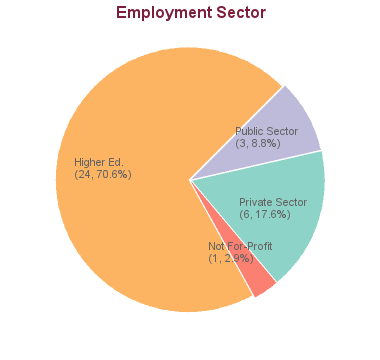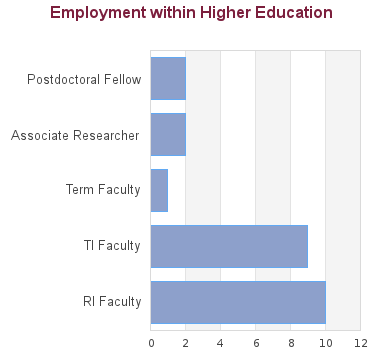Andrea Bundon
Job Title
Assistant Professor
Employer
The University of British Columbia - School of Kinesiology

Review details about the recently announced changes to study and work permits that apply to master’s and doctoral degree students. Read more
The PhD degree in Kinesiology is a research oriented thesis-based degree. The areas of research include the broad domain of physiological, biomechanical, behavioural and psychosocial factors influencing human movement and the analysis of social and cultural transformations in the role and functions of physical activity.
Interested applicants are advised to visit the Frequently Asked Questions section for more information.
The PhD in Kinesiology program affords students an opportunity to learn in a vibrant, supportive, and multidisciplinary research environment. Graduate students are drawn to the School to work with specific research faculty members and benefit from their expertise in specific content areas. Students work closely with individual faculty members who provide exceptional training and focused supervision using a mentorship model. The School offers competitive financial packages to highly qualified students in the form of teaching assistantships and entrance scholarships. Individual faculty members can "top up" a financial package from external grant sources to assist with recruitment of exceptional students. Please see our Awards section for more details.
Confirm the proposed faculty member’s interest and availability before proceeding with the formal application process. If you do not receive a response please contact the Graduate Programs Assistant at kin.gradsec@ubc.ca. DO NOT SUBMIT AN APPLICATION WITHOUT CONFIRMING A POTENTIAL SUPERVISOR AS YOU WILL NOT BE ADMITTED WITHOUT THIS CONFIRMATION. APPLICATION FEES ARE NON-REFUNDABLE.
The Faculty of Graduate and Postdoctoral Studies establishes the minimum admission requirements common to all applicants, usually a minimum overall average in the B+ range (76% at UBC). The graduate program that you are applying to may have additional requirements. Please review the specific requirements for applicants with credentials from institutions in:
Each program may set higher academic minimum requirements. Please review the program website carefully to understand the program requirements. Meeting the minimum requirements does not guarantee admission as it is a competitive process.
Applicants from a university outside Canada in which English is not the primary language of instruction must provide results of an English language proficiency examination as part of their application. Tests must have been taken within the last 24 months at the time of submission of your application.
Minimum requirements for the two most common English language proficiency tests to apply to this program are listed below:
Overall score requirement: 96
Reading
23
Writing
24
Speaking
26
Listening
23
Overall score requirement: 7.0
Reading
6.5
Writing
6.5
Speaking
6.5
Listening
6.5
Some programs require additional test scores such as the Graduate Record Examination (GRE) or the Graduate Management Test (GMAT). The requirements for this program are:
The GRE is not required.
The School of Kinesiology normally requires a thesis-based master's degree in Human Kinetics, Physical Education, Kinesiology, or other related fields of study, for admission.
All applicants have to submit transcripts from all past post-secondary study. Document submission requirements depend on whether your institution of study is within Canada or outside of Canada.
Many programs require a statement of interest, sometimes called a "statement of intent", "description of research interests" or something similar.
Students in research-based programs usually require a faculty member to function as their thesis supervisor. Please follow the instructions provided by each program whether applicants should contact faculty members.
Permanent Residents of Canada must provide a clear photocopy of both sides of the Permanent Resident card.
All applicants must complete an online application form and pay the application fee to be considered for admission to UBC.
| Fees | Canadian Citizen / Permanent Resident / Refugee / Diplomat | International |
|---|---|---|
| Application Fee | $118.50 | $168.25 |
| Tuition * | ||
| Installments per year | 3 | 3 |
| Tuition per installment | $1,875.34 | $3,294.66 |
| Tuition per year (plus annual increase, usually 2%-5%) | $5,626.02 | $9,883.98 |
| Int. Tuition Award (ITA) per year (if eligible) | $3,200.00 (-) | |
| Other Fees and Costs | ||
| Student Fees (yearly) | $1,144.10 (approx.) | |
| Costs of living | Estimate your costs of living with our interactive tool in order to start developing a financial plan for your graduate studies. | |
Applicants to UBC have access to a variety of funding options, including merit-based (i.e. based on your academic performance) and need-based (i.e. based on your financial situation) opportunities.
All full-time students who begin a UBC-Vancouver PhD program will be provided with a funding package of at least $24,000 for each of the first four years of their PhD. The funding package may consist of any combination of internal or external awards, teaching-related work, research assistantships, and graduate academic assistantships. Please see our Awards section for more details.
This results in a net balance (any funding provided to the student minus tuition and fees) mean of $33,236 and median of $32,434.
All applicants are encouraged to review the awards listing to identify potential opportunities to fund their graduate education. The database lists merit-based scholarships and awards and allows for filtering by various criteria, such as domestic vs. international or degree level.
Many professors are able to provide Research Assistantships (GRA) from their research grants to support full-time graduate students studying under their supervision. The duties constitute part of the student's graduate degree requirements. A Graduate Research Assistantship is considered a form of fellowship for a period of graduate study and is therefore not covered by a collective agreement. Stipends vary widely, and are dependent on the field of study and the type of research grant from which the assistantship is being funded.
Graduate programs may have Teaching Assistantships available for registered full-time graduate students. Full teaching assistantships involve 12 hours work per week in preparation, lecturing, or laboratory instruction although many graduate programs offer partial TA appointments at less than 12 hours per week. Teaching assistantship rates are set by collective bargaining between the University and the Teaching Assistants' Union.
Academic Assistantships are employment opportunities to perform work that is relevant to the university or to an individual faculty member, but not to support the student’s graduate research and thesis. Wages are considered regular earnings and when paid monthly, include vacation pay.
Canadian and US applicants may qualify for governmental loans to finance their studies. Please review eligibility and types of loans.
All students may be able to access private sector or bank loans.
UBC has working agreements with MPower Financing - an organization providing international students with no-cosigner, no-collateral education loans to study in Canada - and Windmill Microlending - an organization providing loans to skilled immigrants.
Many foreign governments provide support to their citizens in pursuing education abroad. International applicants should check the various governmental resources in their home country, such as the Department of Education, for available scholarships.
The possibility to pursue work to supplement income may depend on the demands the program has on students. It should be carefully weighed if work leads to prolonged program durations or whether work placements can be meaningfully embedded into a program.
International students enrolled as full-time students with a valid study permit can work on campus for unlimited hours and work off-campus for no more than 24 hours a week during academic sessions.
A good starting point to explore student jobs is the UBC Work Learn program or a Co-Op placement.
Students with taxable income in Canada may be able to claim federal or provincial tax credits.
Canadian residents with RRSP accounts may be able to use the Lifelong Learning Plan (LLP) which allows students to withdraw amounts from their registered retirement savings plan (RRSPs) to finance full-time training or education for themselves or their partner.
Please review Filing taxes in Canada on the student services website for more information.
Applicants have access to the cost estimator to develop a financial plan that takes into account various income sources and expenses.
39 students graduated between 2005 and 2013: 2 graduates are seeking employment; 1 is in a non-salaried situation; for 2 we have no data (based on research conducted between Feb-May 2016). For the remaining 34 graduates:


The PhD program prepares graduates for a broad range of careers. Former PhD students have pursued additional training including post-doctoral degrees as well as careers in health promotion, governmental and non-governmental work, research, and teaching. Many former Kinesiology graduates have become successful academics.
These statistics show data for the Doctor of Philosophy in Kinesiology (PhD). Data are separated for each degree program combination. You may view data for other degree options in the respective program profile.
This program went through a name change in previous years that may have included curriculum changes. It was previously known as: Doctor of Philosophy in Human Kinetics until 2011. Historical data on this page may include data collected under the previous name(s) of the program.
| 2023 | 2022 | 2021 | 2020 | 2019 | |
|---|---|---|---|---|---|
| Applications | 15 | 12 | 15 | 10 | 20 |
| Offers | 9 | 8 | 12 | 6 | 14 |
| New Enrolment | 6 | 8 | 12 | 4 | 9 |
| Total Enrolment | 38 | 43 | 40 | 38 | 43 |
Students in research-based programs usually require a faculty member to function as their thesis supervisor. Please follow the instructions provided by each program whether applicants should contact faculty members.
These videos contain some general advice from faculty across UBC on finding and reaching out to a supervisor. They are not program specific.
This list shows faculty members with full supervisory privileges who are affiliated with this program. It is not a comprehensive list of all potential supervisors as faculty from other programs or faculty members without full supervisory privileges can request approvals to supervise graduate students in this program.
Kinesiology is an academic discipline which involves the study of physical activity and its impact on health, society, and quality of life. It includes exercise science, sports management, athletic training and sports medicine, socio-cultural analyses of sports, sport and exercise psychology, fitness leadership, physical education-teacher education, and pre-professional training for physical therapy, occupational therapy, medicine and other health-related fields.
Departments/Programs may update graduate degree program details through the Faculty & Staff portal. To update contact details for application inquiries, please use this form.
